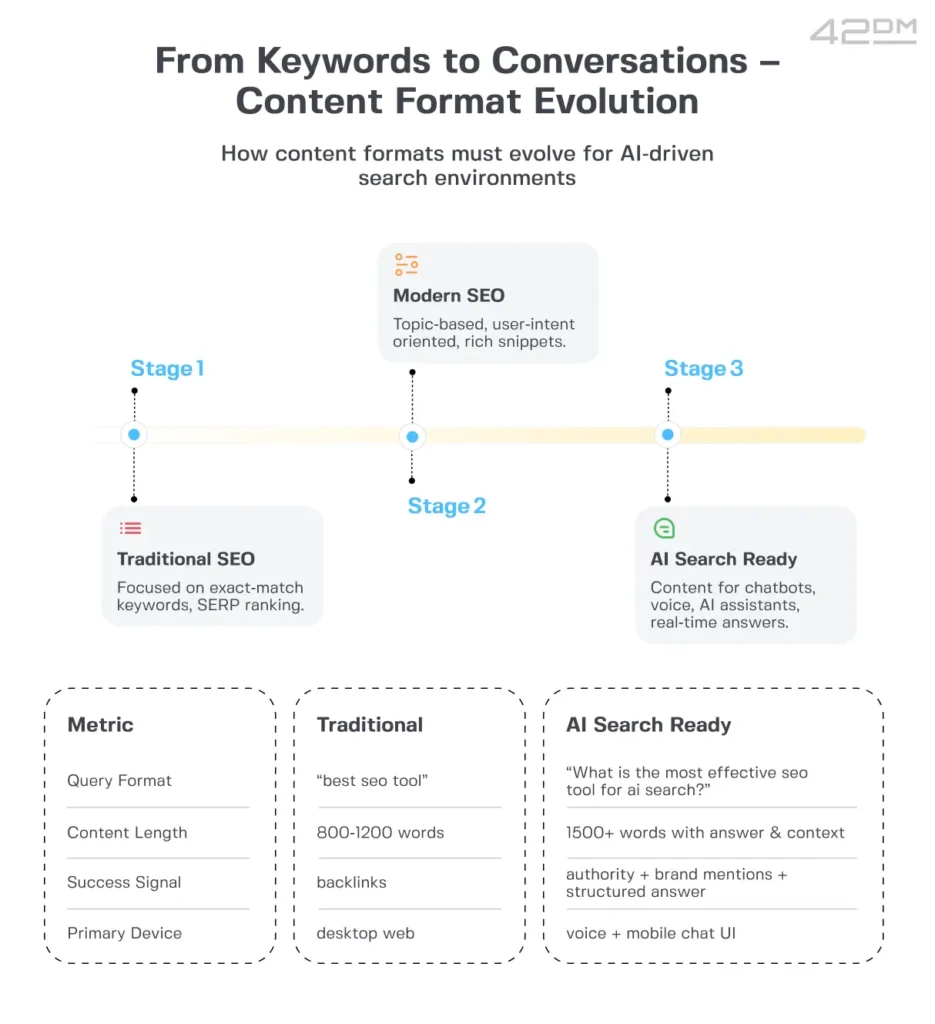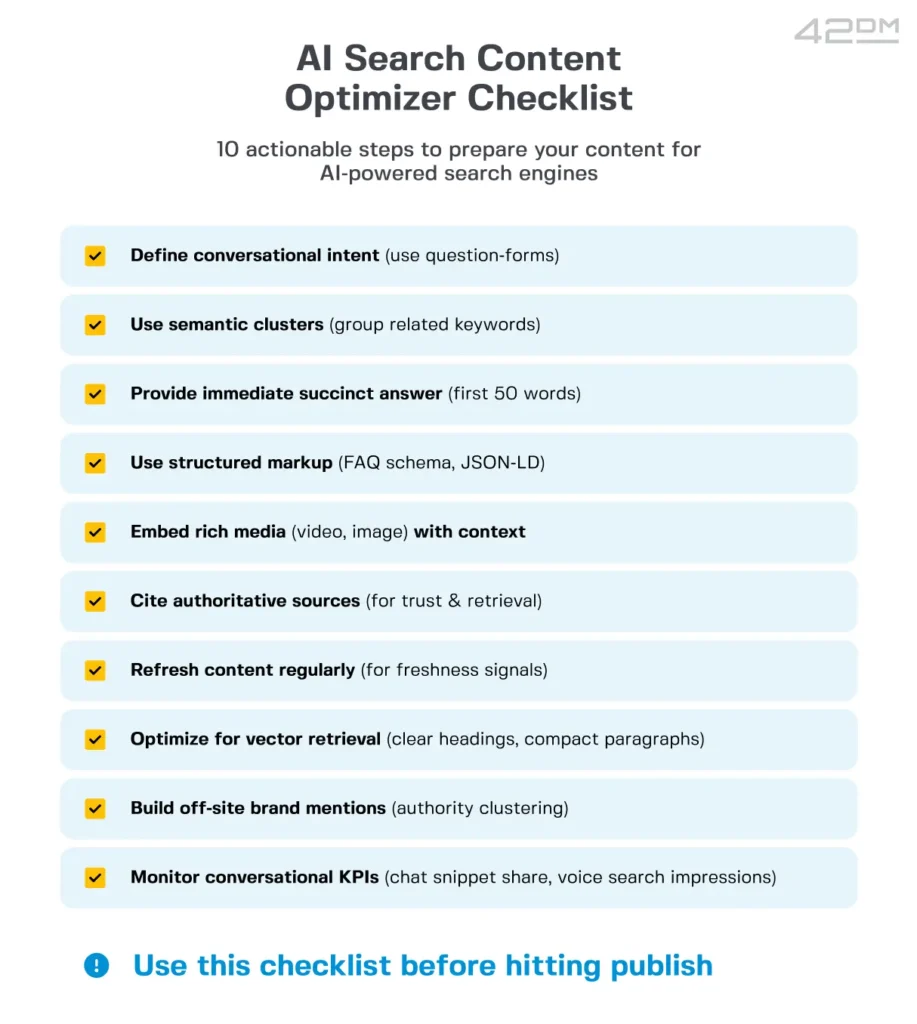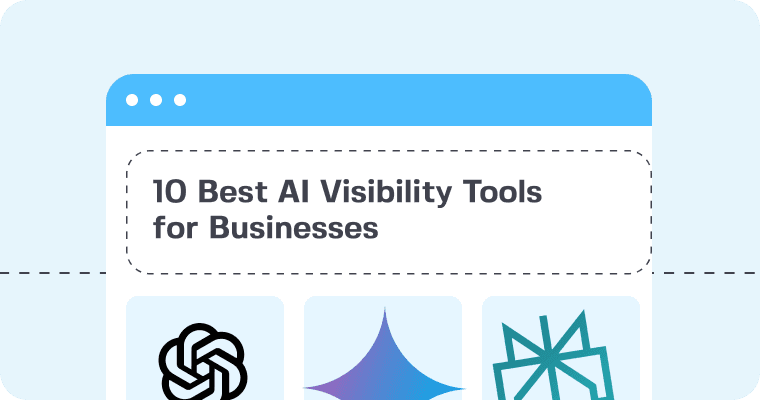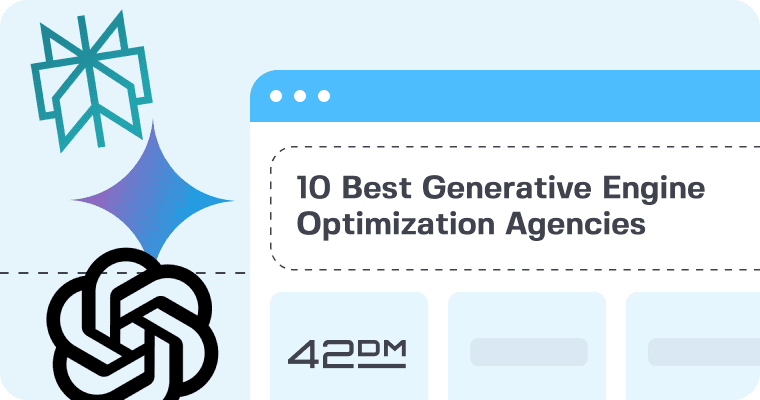Why AI search optimization matters: how to optimize your content for AI-driven results.
AI search optimization is essential for getting your content noticed by new AI search platforms. These systems analyze content differently than traditional search engines, so your content needs to be structured and detailed in a way that makes it easy for them to process. It’s not enough to just throw in some keywords or basic SEO tactics. The content needs to be relevant, well-organized, and able to be parsed by AI systems in a way that aligns with how they rank and present results.
Google vs. AI search: monthly desktop visits and traffic shifts
New AI search engines like Perplexity, ChatGPT, and Copilot are quickly gaining traction. While Google has seen steady traffic, these newer AI platforms are growing fast, and businesses need to start paying attention.

AI search engines handle information differently and offer a new way of engaging with content, making it important to optimize for these platforms if you want to remain visible in search results.
What types of content perform best in AI search results
When it comes to content that ranks well in AI search engines, it’s essential to focus on formats that these systems can easily process. Some types of content, like lists and how-to articles, tend to be favored because they’re structured in a way that makes it easier for AI to pull relevant data and present it in search results. These formats give AI a clear, organized structure, which helps it match user queries with the most relevant answers.
Additionally, AI systems value content that’s comprehensive and covers topics in-depth. This type of content helps ensure that your articles don’t just scratch the surface but provide the kind of detail that AI systems prefer when selecting sources to cite.
AI citations: role of video content in YMYL vs. non-YMYL queries
AI search engines treat video content differently based on the type of query. For non-YMYL (Your Money or Your Life) topics, like gardening or home improvement, video citations are common. AI systems often automatically feature videos, with platforms like Perplexity citing them 89% of the time for these types of queries.
However, when it comes to YMYL topics—like finance or health—the trend shifts. AI systems are less likely to cite video content for these topics, with citation rates as low as 22% to 24%. This difference indicates that for certain types of content, like financial advice or medical information, text-based content may be preferred over videos.
Which article formats are most frequently cited by AI search engines
The format of your content also plays a significant role in how it’s cited by AI search engines. For non-YMYL queries, lists and how-to guides are the most commonly cited article formats. These formats provide structured, easily digestible information, making them ideal for AI systems to process and rank.
For YMYL topics, however, AI systems tend to prefer older, more authoritative articles over newer or more dynamic formats like lists or how-to guides. This suggests that, for YMYL content, AI systems prioritize content with a proven track record, such as in-depth articles or established resources, to ensure reliability and trustworthiness.
Content length to achieve AI citations
Content length plays a significant role in AI citations. For YMYL queries, the average word count for cited articles is approximately 1,000 words, while for general queries, it’s around 1,500 words.
Interestingly, even shorter articles can be cited if they include valuable media. For example, the shortest cited article was only 162 words but included an embedded YouTube video, which contributed to its citation despite its brief length.
Additionally, all cited articles contained images, with an average of two images per article. This indicates that while content length is important, visual elements also play a role in improving your chances of being cited by AI systems.
Do AI systems cite images? Visual content in AI search
Images are another element that AI search engines consider when selecting content for citations. For general queries, AI search engines are more likely to cite images, with a citation rate of around 70%. However, for YMYL topics, the citation rate drops significantly, with images being referenced only about 10% of the time.
This suggests that while images can improve user engagement and the overall quality of content, their direct impact on AI citations varies depending on the query type. If you’re optimizing for AI search, it’s important to include images when appropriate, but also understand that they may not always be prioritized, especially for sensitive topics.
How to optimize your content for AI search platforms
Optimizing content for AI search engines shares similarities with traditional SEO, but with a focus on how AI systems process and present information. The goal is to create content that is clear, well-structured, and easy for AI to understand, process, and rank.
AI SEO basics: optimizing for AI-driven traffic and engagement
To effectively optimize for AI search engines, focus on creating content that is both detailed and well-structured. AI systems prioritize in-depth articles that provide comprehensive coverage of a topic. This means going beyond surface-level content—incorporate relevant statistics, expert opinions, and well-researched data to back up your claims. Citing reputable sources helps build trust and credibility, which is crucial for ranking.
Additionally, AI search engines tend to favor content that is easy to navigate and digest. Use clear and logical formatting with headers and subheaders to break up long paragraphs and guide both users and AI systems through the content. Ensure that your content answers specific questions in a conversational tone, as AI search engines are increasingly focused on responding to user intent with precision. Optimizing your content with these principles will improve engagement and help it rank higher in AI search results.
Perplexity SEO strategy: how to rank in Perplexity’s AI search engine
To effectively rank in Perplexity’s AI search engine, focus on regularly updating your content to ensure it’s fresh and authoritative. Incorporate credible sources and showcase your expertise to enhance the trustworthiness of your content.

In addition to content quality, optimize for long-tail, question-based keywords that align with conversational search. Leveraging multiple platforms, such as YouTube videos and articles, can increase your visibility and provide Perplexity with more data to cite. Using Perplexity Pages also helps improve your ranking by targeting specific topics more effectively.
Conversational search optimization: win at ChatGPT and voice search
Conversational search optimization is crucial for platforms like ChatGPT and voice search. To rank well in ChatGPT, focus on providing clear, direct answers to specific queries. Avoid stuffing your content with keywords; instead, structure it around relevant questions and answers:
- Start with a common question in your niche.
- Provide a concise answer immediately after.
- Follow up with more detailed explanations.
- Use infographics to present answers, especially for step-by-step instructions.
Target Informational, long-tail keywords to boost AI rankings
Rather than targeting individual long-tail keywords, focus on creating high-quality, intent-driven content that naturally incorporates related keyword variations. This approach also supports voice search optimization by emphasizing a conversational tone and prioritizing semantic relevance over exact keyword matches.
Use structured, concise content for AI search SEO
For effective AI search SEO, content must be clear and well-structured, allowing AI search engines to easily scan and summarize it for AI-generated answers.
To ensure content is easily scannable and summarizable for AI, keep paragraphs short (2-3 sentences max), use bullet points and numbered lists for quick AI extraction, format with H2/H3 subheadings to match AI-generated responses, and optimize for featured snippets and AI Overviews by providing clear, concise answers.
Build authority and trust for AI SEO success
AI search engines prioritize content that is not only informative but also trustworthy and authoritative. To rank well, your content needs to be supported by credible data, case studies, and expert opinions. This means going beyond surface-level insights and ensuring that every claim you make is backed by well-researched facts.
Content that demonstrates expertise is highly valued by AI systems, as it helps build trust with users. Make sure to reference reputable sources, include relevant statistics, and provide in-depth analyses to substantiate your points. Case studies are particularly powerful, as they showcase real-world applications and outcomes, adding tangible value to your content. By grounding your content in data and proven expertise, you’ll increase its relevance and authority, improving your chances of ranking higher in AI search results.
Boost artificial intelligence optimization with brand mentions
Brand mentions play a significant role in AI search engine optimization by enhancing your content’s credibility and authority. Engaging in online conversations and generating positive references to your brand across various platforms not only increases visibility but also strengthens trust with both users and AI systems. AI search engines take into account the frequency and context of brand mentions, treating them as indicators of relevance and reliability.
To boost your AI optimization, actively participate in discussions within your industry and across social media platforms. Positive mentions from reputable sources, such as industry influencers, media outlets, and authoritative websites, contribute to building your brand’s online presence. These references signal to AI systems that your brand is respected and recognized within its field.
From strategy to action: mastering AI content optimization for future-proof SEO
Mastering AI content optimization for future-proof SEO requires adapting strategies to the evolving capabilities of AI search engines. Prioritizing detailed, structured, authoritative, and conversational content significantly improves visibility in AI search results. Emphasizing brand mentions, utilizing appropriate content formats like lists and how-to guides, and structuring content for easy AI processing are all crucial for success in the age of artificial intelligence in search engines.













